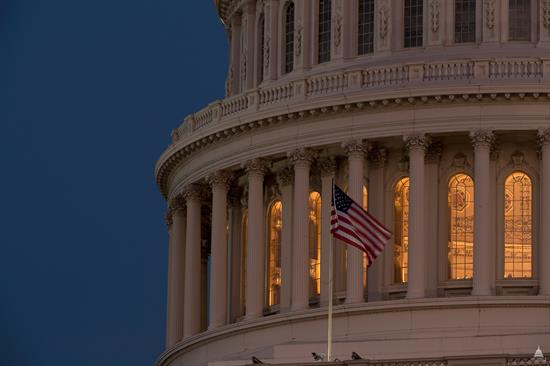McGovern Applauds Announcement of New Russia Magnitsky Sanctions
Washington,
December 20, 2017
WASHINGTON, DC - Today the U.S. Department of Treasury announced that five people have been added to the list of those sanctioned under the Sergei Magnitsky Rule of Law Accountability Act. Three of the individuals in question are linked to the Magnitsky case, while the other two are Chechen officials sanctioned for gross human rights violations.
Congressman Jim McGovern (D-MA), senior House Democrat and Co-Chair of the bipartisan Tom Lantos Human Rights Commission, praised the decision by the State Department. As the author of the original Magnitsky sanctions bill, Congressman McGovern has been a leading voice in this effort and welcomed today’s action. “I celebrate today’s announcement that the U.S. government has imposed new sanctions on five more Russians under the Sergei Magnitsky Rule of Law Accountability Act – three for their involvement in the brazen fraud that led to Sergei’s brutal death, and two for gross human rights abuses in Chechnya. “It’s been eight years since Sergei Magnitsky was beaten and died in prison for trying to do the right thing. No one has been held accountable in Russia for what happened to him. “I am very pleased that the U.S. government continues to do its part to ensure some level of punishment. The addition of Andrei Pavlov and his former wife Yulia Mayorova is particularly significant because they were at the center of the $230 million fraud against Hermitage Capital that Magnitsky uncovered and was killed over. They’ve been important targets for a long time and I’m pleased they’ve finally been designated. “I also cannot overstate the importance of sanctioning Ayub Kataev for the abduction, detention and torture of over 100 men due to their actual or suspected sexual orientation. The Congress called for action like this when it passed House Resolution 351 last June. “Frankly, the best news today may be that the State and Treasury Departments have done their jobs by properly enforcing the Sergei Magnitsky Rule of Law Accountability Act. It is the Magnitsky sanctions that the Russian government has tried to block by reaching out first to the Trump campaign, then to the transition team, and then to the president and his staff. But in spite of Russia’s insidious efforts, the agencies of the U.S. government acted with honor. The sanction against Ramzan Kadyrov, a high-level figure useful to Putin, for overseeing an administration involved in disappearances and extrajudicial killings, is especially notable. “Even as I welcome this news, I recognize that there are many more individuals in Russia who could and should be sanctioned for their involvement in human rights abuses and corruption. I will continue to closely monitor the implementation of the Magnitsky law, as I have done since 2012, and to encourage the administration to pursue more investigations. A constructive U.S. relationship with Russia is important, but it cannot be built on a shaky foundation of corruption and condoning human rights violations.” Sergei Magnitsky was a lawyer hired by William Browder, the founder of Hermitage Capital Management, to investigate after the company was raided and transferred to Russian state control. Mr. Magnitsky helped file a number of criminal complaints and testified against officials involved in the raids, until he was arrested himself in retaliation. He was held in custody for 358 days, tortured, denied medical care and eventually beaten to death in 2009. After his death, a Russian court convicted Magnitsky of tax evasion. The trial was widely condemned internationally for setting a dangerous and chilling precedent. Congressman McGovern helped lead the passage of the Sergei Magnitsky Rule of Law Accountability Act in 2012, securing a bipartisan vote of 363-45 (PL 112-208). The law imposes visa bans and blocks the U.S. assets of certain Russian officials involved in Magnitsky’s death, and of other gross violators of human rights in Russia. The list of these individuals now comprises 49 names. Persons on this list are ineligible for visas and to be admitted to the United States. These individuals have also been added to the Treasury Department Office of Foreign Assets Control’s List of Specially Designated Nationals and Blocked Persons (“SDN List”). As a result, all assets of these individuals that are subject to U.S. jurisdiction or in the control of U.S. persons are blocked, and U.S. persons are generally prohibited from engaging in transactions with them. |
Press Releases
Constituent Services
Read More
How can I help?
From getting answers from government agencies to cutting through red tape to get you results, my office is here to help.
